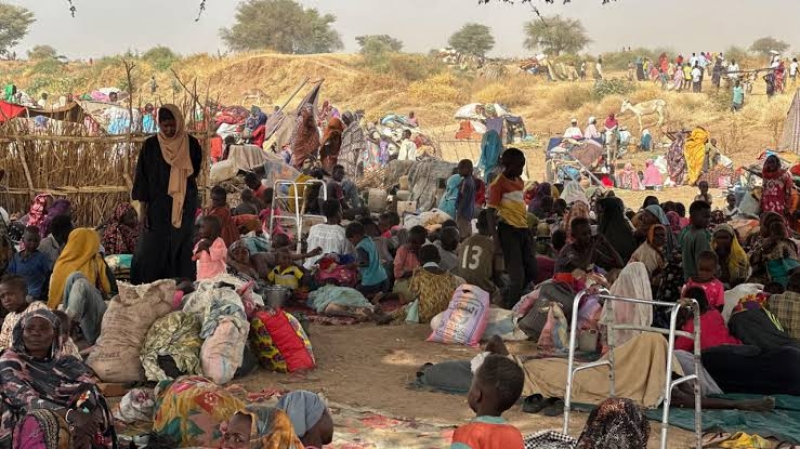- Body of Osman Hadi Returns to Dhaka From Singapore Late |
- Fakhrul condemns attacks on media, calls for unity, justice |
- 2 cops among 4 hurt in clash outside Indian Assit H.C. in Ctg |
- Inqilab Moncho urges people to avoid violence |
- Hadi’s death: Prothom Alo, Daily Star offices set afire |
London Hosts High-Level Talks to End Sudan War

Senior diplomats and international leaders are gathering in London on Tuesday to chart a long-sought pathway to peace in Sudan, marking two years since the outbreak of the country’s devastating civil war. Notably absent, however, are representatives from the two warring factions.
Dubbed by many as the "forgotten war," Sudan’s conflict erupted on April 15, 2023, as a power struggle between the regular army and the paramilitary Rapid Support Forces (RSF) spiraled into full-scale violence. The brutal rivalry between General Abdel Fattah al-Burhan and his former deputy, RSF leader Mohamed Hamdan Daglo, has since triggered what the United Nations describes as the world’s worst hunger and displacement crisis.
More than 13 million people have been forced from their homes, tens of thousands killed, and millions more left without access to food, shelter, or healthcare. Both sides have been accused of widespread atrocities, including violence against civilians and war crimes.
“This conference will bring together the international community to agree a pathway to end the suffering,” said UK Foreign Secretary David Lammy, who is hosting the conference. “Instability must not spread—it fuels migration and poses a direct threat to regional and global security.”
The UK announced £120 million ($158 million) in new aid for Sudan, as part of a renewed international effort to galvanize support for a resolution to the conflict. “The UK will not let Sudan be forgotten,” Lammy said. “The brutal war has devastated millions of lives, yet much of the world continues to look away.”
A Grim Milestone
The conference, co-hosted by Germany, France, the European Union, and the African Union, also marks the second anniversary of the war’s outbreak. Delegations from 14 countries, including Saudi Arabia and the United States, are expected to attend alongside senior UN officials and humanitarian leaders.
But the absence of both the Sudanese government and the RSF casts a shadow over the proceedings. Sudan's foreign ministry formally protested its exclusion earlier this month, accusing Britain of equating the internationally recognized government with the RSF militia.
Germany’s foreign minister Annalena Baerbock countered that both sides had shown no willingness to negotiate. She called the situation in Sudan “the greatest humanitarian catastrophe of our time,” announcing an additional €125 million ($142 million) in aid from Berlin.
A UN-backed food security assessment recently confirmed that famine has taken hold in parts of Sudan. Over 30 million people now require urgent assistance, with 12 million women and girls facing heightened risks of gender-based violence.
Children have borne the brunt of the violence. UNICEF Executive Director Catherine Russell reported that at least 2,776 children were killed or maimed in 2023 and early 2024—compared to just 150 in the year before the war—warning that the true toll is likely far higher.
A Country Divided
The war has effectively split Sudan in two. The army controls much of the east and north, including the capital Khartoum, which it reclaimed last month. Meanwhile, the RSF holds sway in Darfur and parts of the south, where its roots and support are strongest.
Mirjana Spoljaric, president of the International Committee of the Red Cross, described the conflict as “a ruinous war” that has left civilians “trapped in a relentless nightmare of death and destruction.”
UN Secretary-General António Guterres on Monday voiced concern over the continued flow of weapons and fighters into the country. “The external support must stop,” he said, urging the international community to halt all arms shipments and pressure both sides to return to negotiations.
African Union Commissioner Bankole Adeoye emphasized the need for an inclusive peace process: “Achieving peace in Sudan depends on valuing every voice and ensuring that everyone plays a role in building a prosperous, united Sudan.”
With no ceasefire in sight and humanitarian needs at staggering levels, the London conference aims to break the diplomatic deadlock—and remind the world that Sudan’s suffering can no longer be ignored.

